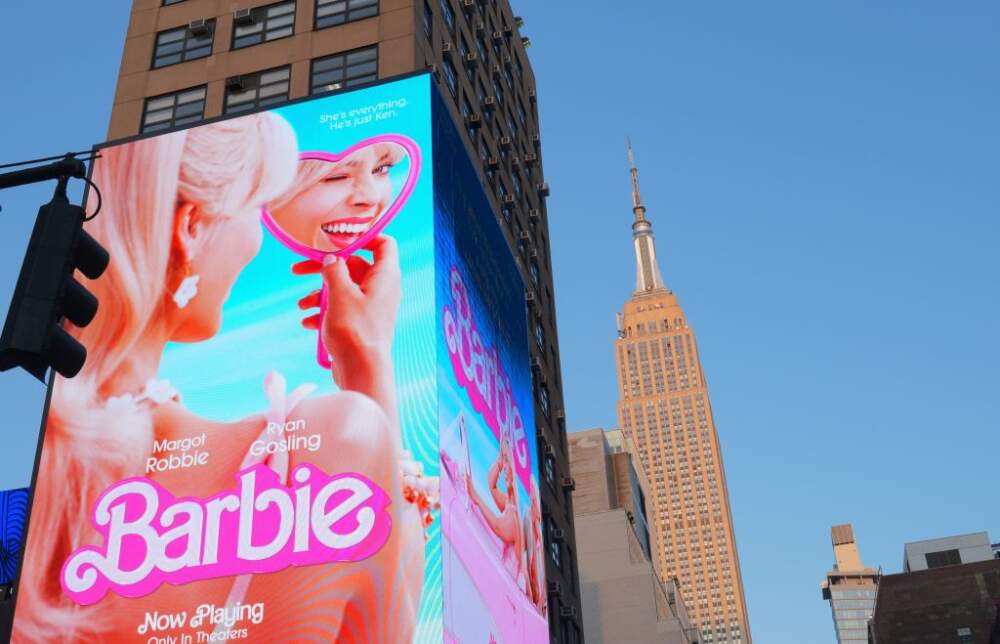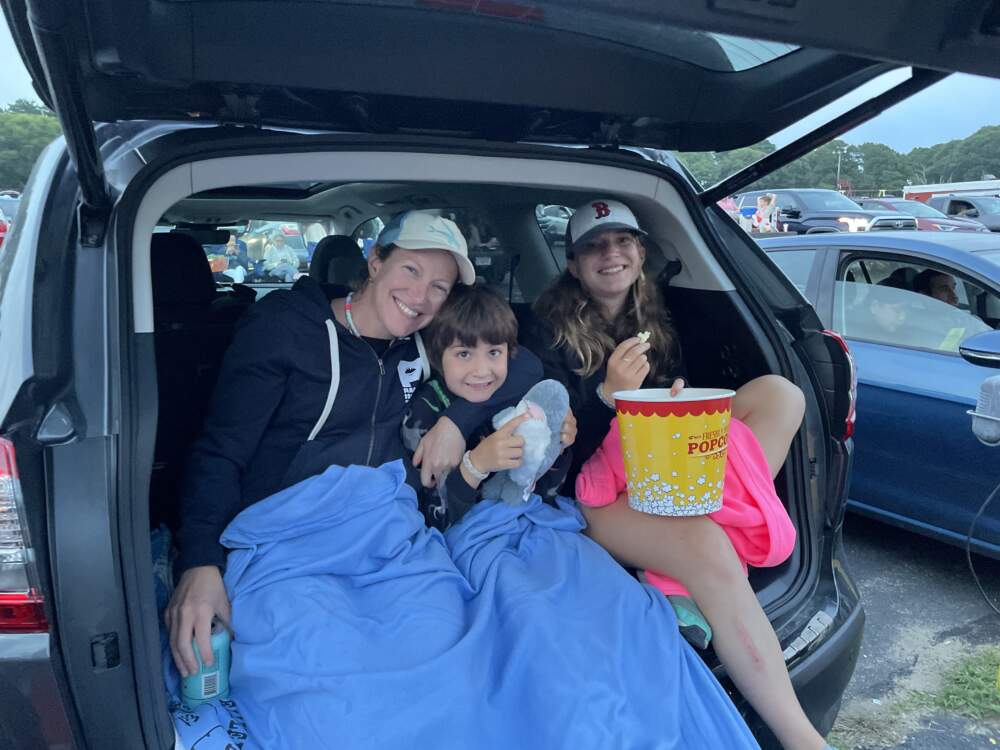Advertisement
Commentary
We all contain multitudes. Even Barbie

When my daughter turned 2, my friend Margaret gave her a pink Barbie dream car convertible. You know the one. She never really got into Barbies, but between her and her two younger brothers, that pink convertible ferried Elsa, Batman and countless pairs of stuffed animals for miles across our hardwood floors.
As for me, if we’re talking 1980s girlhood, I was not exactly your average bear. I had a He-Man castle, not a dream house, and at 8 was more into The Monkees’ cinematic universe than Barbie’s.
I’m just setting the stage here, because listen: I loved the Barbie movie.
You’re probably familiar with the premise of the film by now: During an otherwise ubiquitous day of “beach,” elaborately choreographed dance parties and all-girl sleepovers, Margot Robbie’s sunny “Stereotypical Barbie” asks, in a record scratch, “Do you guys ever think about death?” (They do not.)
The next day strange things are afoot at the Barbie dream house: her shower runs cold and her feet go flat. When Kate McKinnon’s “Weird Barbie” tells her she needs to go to the “Real World” to find the human whose errant thoughts are causing the glitch, “Ken” — give Ryan Gosling an Oscar right now — pops up from the backseat of the convertible, rollerblades at the ready, and tags along.
The Friday night of opening weekend I saw the movie with Margaret, the same friend who gave us the convertible. She was visiting with her family from Virginia, and we packed up two cars, five kids (ages 7 through 13), four adults, one cooler and two shopping bags of snacks and drove to Wellfleet, Massachusetts to watch the movie at a drive-in.
We arrived early and had plenty of “seats” to choose from. We pulled our cars into two parking spaces about five rows from the front, our open hatchbacks facing the screen. Two metal speakers hung from yellow poles stationed between cars, and when we rolled in they were blasting the 1997 Aqua earworm “Barbie Girl.” The vibe was as you’d expect: festive and very pink. There was a pink VW Beetle parked two rows ahead of us and the merch table had a run on hot pink blankets (our group contributed to this). Walking back and forth from the concessions, I saw at least three pink party dresses and one set of impressively-high pink heels.
Advertisement
The movie started around 8:30, and within 15 minutes, the sun had set and Barbie had entered the “Real World.” The screen was bright, the sound was clear, and we snuggled under blankets, sharing extra-large buckets of popcorn.

When we arrived, Margaret told me the movie was rated PG-13 for “existential angst.” I love this for Barbie.
As the story unfolds, it’s about a great many things: the confusion and madness and joy and myriad contradictions inherent in being a girl, a woman, and — in different ways — a man. Also patriarchy, feminism, capitalism and Matchbox 20. Rolling Stone is calling it one of the most subversive movies of the 21st Century.
“Barbie” is already breaking all kinds of records. It’s the first studio comedy to gross more than $100 million on opening weekend — it hit $162 million in three days — and it’s the highest opening in North America for a female director — ever.
That Greta Gerwig accomplishes this alongside quips on Stephen Malkmus lyrics and BBC’s “Pride and Prejudice,” never mind a bit that made my 11 year-old ask, “What’s Proust?” is pretty remarkable.
There’s a monologue in the film when America Ferrera’s character unpacks all the things women have to be, all the contradictory pressures and expectations and double standards of beauty and responsibility and ambition and caretaking. At that very moment, I was up from my camping chair, re-positioning the speaker and coaxing kids to swap places so one could lay down and the other could sit, reminding them not to yell — that we were not on our couch at home. I dropped a handful of Pringles into another child’s lap and said out loud, “I am watching a movie about women doing everything while I do everything.”
And while I’m an adult with a job and a robust collection of Birkenstocks, I still feel like a teenager sometimes, like I’m carrying around these multiple timelines of myself, thinking, “Isn’t this all supposed to make some sort of sense by now?” In an interview in The Atlantic, Gerwig says, “I think that in trying to pull it together and understand where you are and where you’ve been, there’s always an ache in it.”
There are toys that see us through stages of life, and there are people. The friends that came to visit, the ones we watched the movie with. We know the late-night 20-something versions of each other and the bleary early-30s-new-parent versions. Now, as we’re entering midlife — and our kids are at the precipice of being teenagers — in some ways, we share a fair amount of existential angst. But in others, it’s laughing until our eyes grow teary, and feeling like life is both deeply overwhelming and all we've ever wanted at the same time.
There’s also a special kind of magic when a friend sees and loves all the moving parts — the good, the bad, the just plain weird — that make you, you. I think it helps you hold all those versions of yourself, too. It’s the messy both/and of it all.
If you've seen the film, you know the Indigo Girls have been telling us something like this all along. And driving home, I listened to a song by the band Boygenius — it goes, “And it feels good, to be known, so well.”
How funny, for someone who never had a house full of Barbies, to be known so well by this movie.

